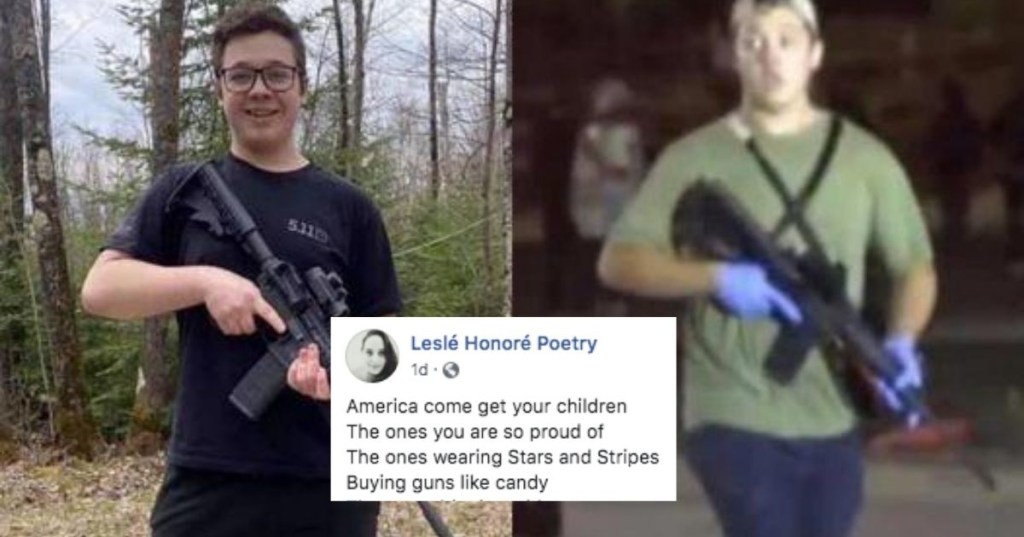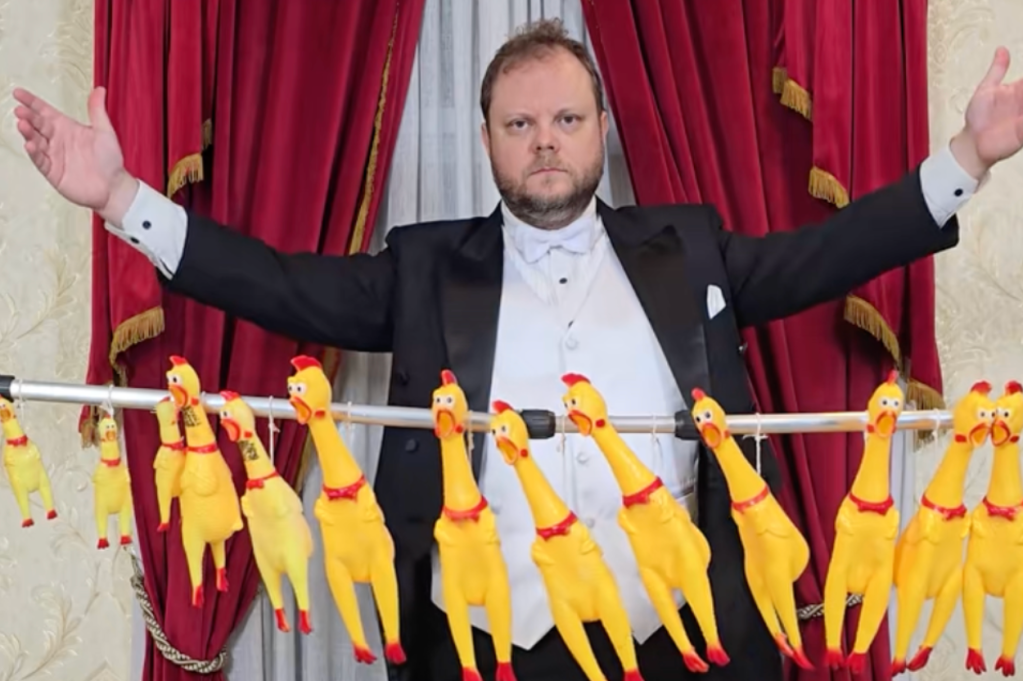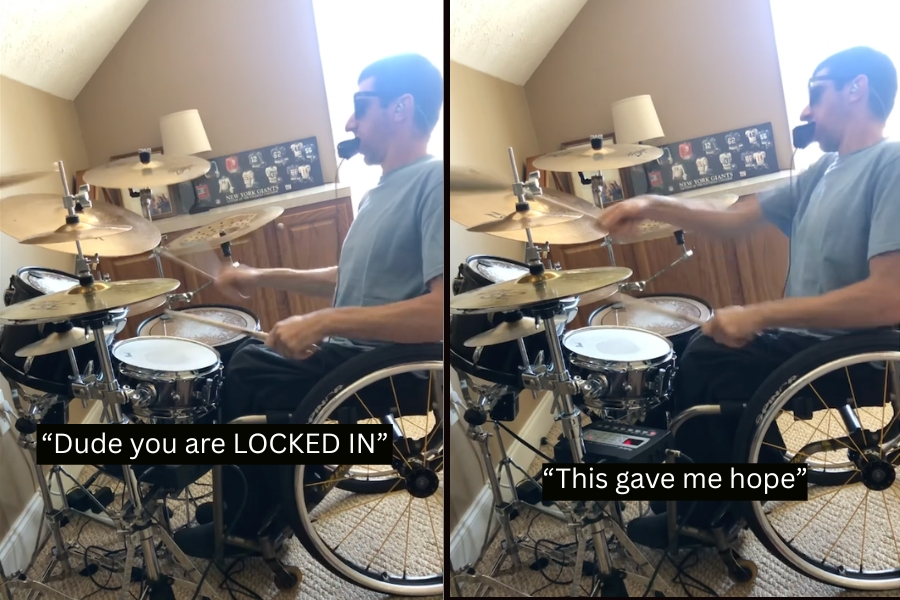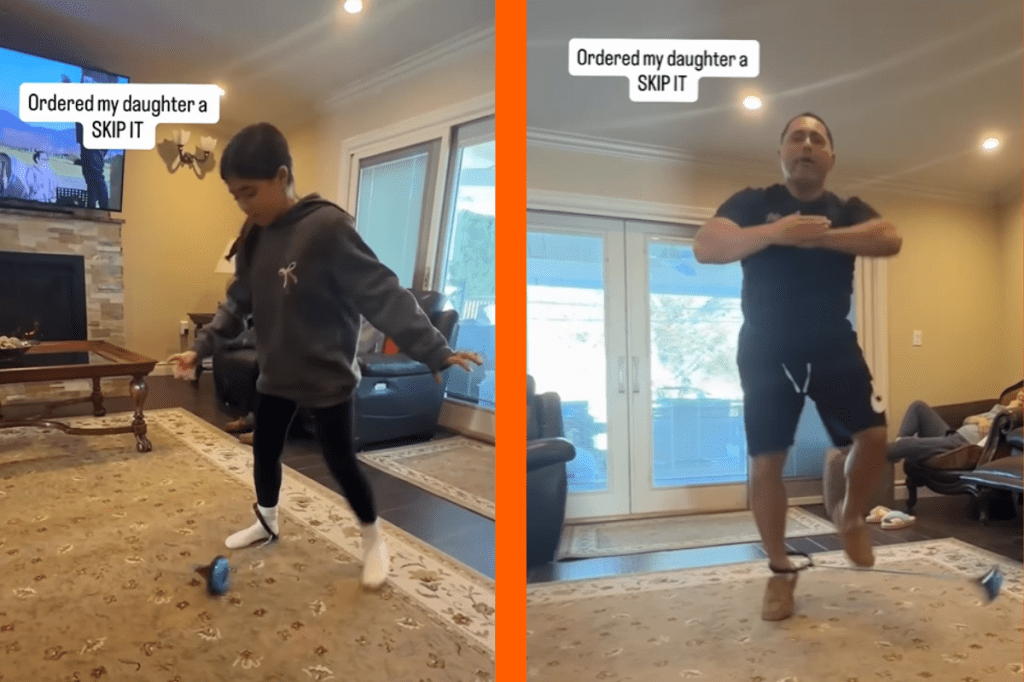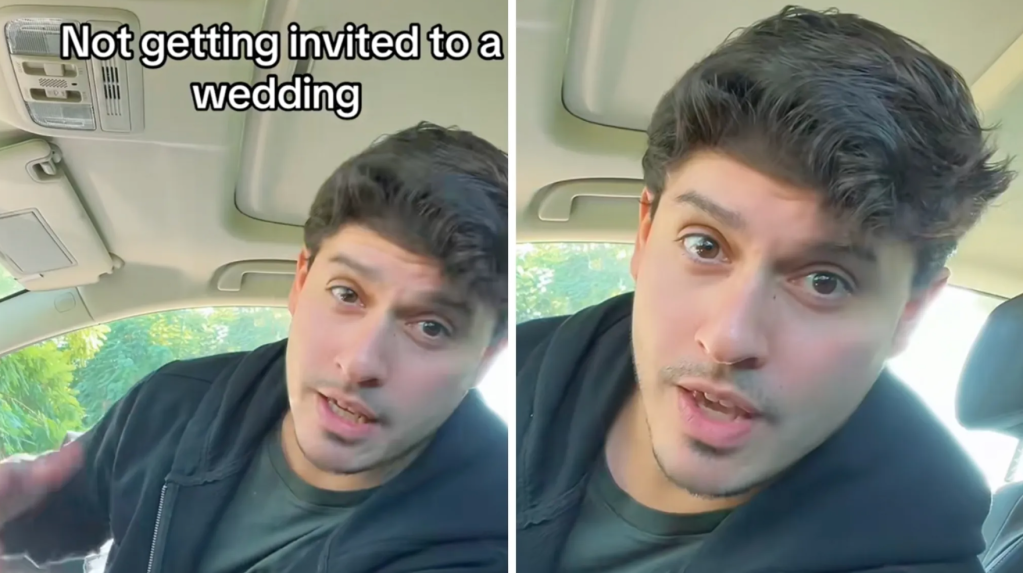Looking at a photo of Kyle Rittenhouse, it’s hard for many of us not to see every horrible American stereotype personified. The 17-year-old who illegally crossed state lines with a semi-automatic rifle to “protect businesses” in Kenosha, Wisconsin, ended up shooting three people, killing two of them.
And for these actions, he’s been celebrated by some as a hero.
The vastly different ways people view this teen is emblematic of the division in the U.S. when it comes to racial justice. Where some people see a patriot, others see a terrorist. How anyone could look at a 17-year-old illegally carrying a gun, prepared to shoot people while protecting property that isn’t his as anything other than radicalized is beyond me. Yet here we are.
Poet Leslé Honoré shared a poem on Facebook that sums up the haunting feeling the Kyle Rittenhouse killings conjure for many Americans—particularly for those who have been on the receiving end of racism and gun violence from people who present themselves as “pro-America.”
Honoré’s first book of poetry, Fist and Fire, can be found here. She also has a new book, Letters and Lagniappe, coming out this fall.
The poem reads:
America come get your children
The ones you are so proud of
The ones wearing Stars and Stripes
Buying guns like candy
The ones dripping with
White privilege
That you created with
Red blood from brown skin
America come get your children
Come get your kids
The ones flying flags of defeat
Of history long dead
Of a life they wish they had
Of superiority they believe they have
The lies you whispered in their ears
As you rocked them to sleep
“Look away look away look away Dixie land”
America come get your children
The ones terrorizing this country
The ones terrorizing the world
The ones never called a terrorist
Come get
Your rapist
Your misogynistic
Your appropriating
Hating
Bigoted
Offspring
You know…
the apples that didn’t fall far from the tree
America come get your children
The ones running the country
The ones too cowardly to speak up
The ones that shoot into protests
Churches
Light torches
Run cars into peace
Come get your diseased infants
Entitled children in men’s bodies
Jealous girls screaming in women’s voices
Come get this disgusting basket of
Deplorables
That you nurtured on
Manifest destiny
The pale pink faces
In utter disbelief
That even though you put your knee
On every Brown and Black neck you saw
We have fought back and risen
Casting shadows on your children
And they rage when they learn
That being a white mediocre man
Is no longer enough
America come get your children
Before they burn this stolen land down
And you with it
– Leslé Honoré
But what’s remarkable is that despite how relevant the poem is to this moment, it wasn’t written specifically for this moment. Honoré wrote it in 2017 after the mass shooting in Las Vegas.
Honoré tells Upworthy that she has a couple of gun violence poems that she reshares whenever the moment fits—which unfortunately is far too frequently. “It’s very sad and heavy that I don’t even have to write a new poem,” she ways. “I can just change the hashtag because nothing has changed. Nothing changed from Sandy Hook, nothing changed from Columbine, nothing changed from Florida, nothing changed from Vegas. It was a continuation of this very sad and heavy state that we’ve been having in this country when it comes to gun violence.”
She says this poem struck a nerve for “reminding people that this is exactly who we are, and until we address this honestly, we’re not going to have any change.”
“This is very much our legacy,” she says. “It’s what the country was built on. It was built on enslaving people for free labor, stealing land, oppression, a legacy of Jim Crow laws, and segregation, and black belts, and the Great Migration and the Civil Rights Movement. All of these things are very much linked.”
Honoré says some of her favorite responses to the poem are from people new to her work who express either gratitude for expressing what they don’t know how to, in addition to people who feel pushed by it in a good way. “Always, for me, it’s when I get white readers who thank me for challenging them and who say that they’re seeing things differently by reading my poetry,” she says. “That just makes my knees buckle and gives me goosebumps. And it helps me swallow the other not very nice things that I get in my inbox or on the comments on the poem.”
“To use a country phrase,” she adds, “I’ve been called everything but a child of God.”
Indeed, the comments on her poem are a mix that reflect the unrest we’re seeing across the country. “If you ever want to see what the underbelly of America really looks like, grab a glass of your favorite liquor and look in the comments of this poem,” she says, “because it’s hideous.” The worst comments, though, go straight to her inbox because people aren’t brave enough to put them up for everyone to see. “Typically I get ‘You’re a fat, ugly, stupid c*nt,’” she says, then laughs. “Like, do the white nationalists copy and paste that to me?”
Honoré says she’s developed a thick skin and doesn’t let the hate bother her. In addition to writing poetry, she works for a non-profit subsidiary of SEIU (Service Employees International Union) that trains more than 30,000 home care workers who work with the elderly, people with disabilities, and children—work that is done primarily by Black and brown women. The advocacy work she does helps inform her writing, she says. She has seen these essential workers make huge sacrifices during the pandemic and racial unrest, with some walking for hours to get to their clients who need them when public transportation in Chicago got shut down. “That’s the commitment of the people who we represent,” she says, “so I could give two shits about some stranger calling me a c*nt in my inbox. I’ve got really important work to do.”
Honoré has had poems go viral before, but this one is different. “Typically the pieces that go big are some of my feel-good pieces where we can see ourselves and see our humanity. This one struck a nerve in a very unique way, and it was like a dog whistle for…phew, I mean, anything that anybody who calls themselves an activist is fighting against. It’s all there in black and white.”
Facebook took down the poem briefly, with Honoré receiving a notice that it had been flagged for violating community standards on hate speech (undoubtedly because some white folks who got big mad about it reported it). The same thing happened on Instagram, but both platforms restored the poem after it was reviewed.
Despite what angry commenters may think, Honoré is clear that the reality expressed in her poem does not reflect a hatred for the U.S. “I love being American,” she says. “I’m the daughter of a Mexican immigrant. My father was an African-American from New Orleans. The plantation where my family was enslaved is still standing in New Orleans…I’m American as it gets, both by birth right and blood right. So I feel I have the liberty to criticize her to be better.”

